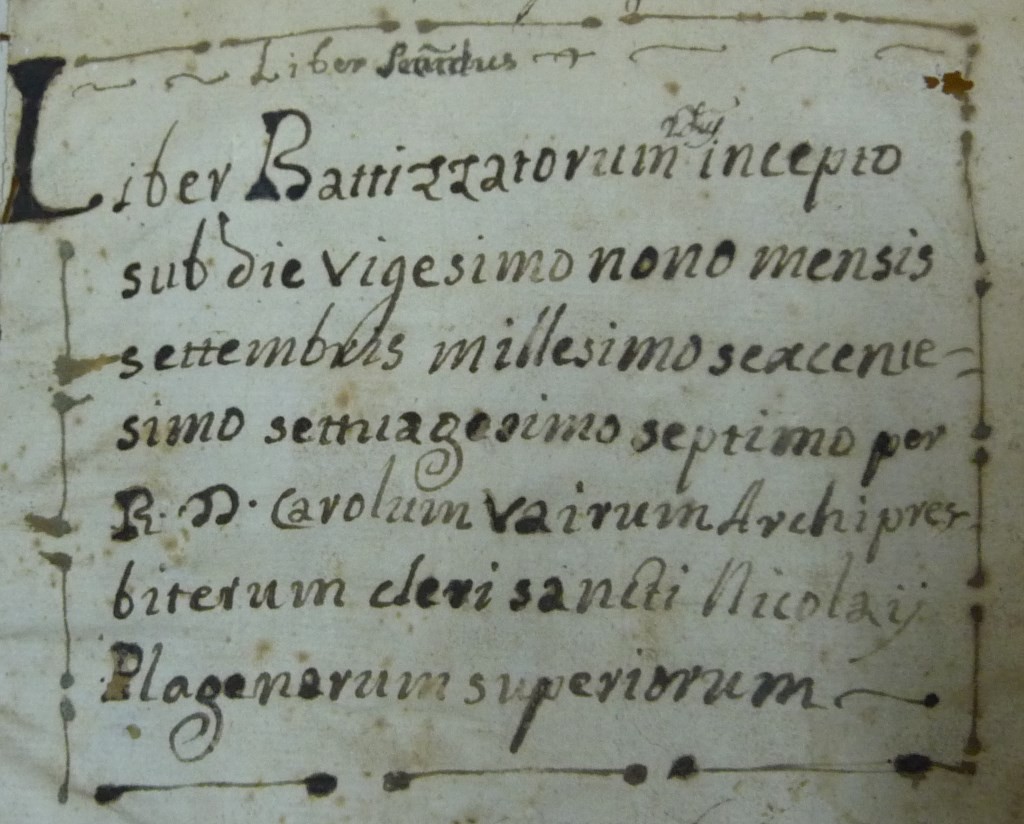I'm writing a family history and I keep wavering on the use of commas at the beginning of sentences.
Which is (more) correct?
In 1941 the United States became directly involved in World War II when Japan...
In 1941, the United States became directly involved in World War II when Japan...
Which is (more) correct?
On January 9, 1895 a baby was born to a peasant couple residing in...
On January 9, 1895, a baby was born to a peasant couple residing in...
Thoughts?
Comma or No Comma?
Re: Comma or No Comma?
darkerhorse wrote: 05 Feb 2021, 17:14 I'm writing a family history and I keep wavering on the use of commas at the beginning of sentences.
Which is (more) correct?
In 1941 the United States became directly involved in World War II when Japan...
In 1941, the United States became directly involved in World War II when Japan...
Which is (more) correct?
On January 9, 1895 a baby was born to a peasant couple residing in...
On January 9, 1895, a baby was born to a peasant couple residing in...
Thoughts?
The rule that applies here is a comma after a date.
For the first set...
From this site:
https://www.theclassroom.com/put-comma- ... 14706.html
For the second set...Using Comma Punctuation to Divide Clauses Including Dates
If you are writing a sentence with more than one clause that involves a two-part date, such as a month and day or a month and year, a comma comes after the first clause and before the second clause. This is true regardless of whether the date is at the end of the first clause or at the end of the sentence. Normal two-part date rules apply to the date in the written sentence.
Examples:
Comma after date: On March 3, she will perform in her first Broadway production.
No comma after year: He began his business studies at the beginning of his second semester, in January 2010.
From this site:
https://www.grammarly.com/blog/comma/
T.Commas in Dates
When writing a date in month-day-year format, set off the year with commas.
July 4, 1776, was an important day in American history. I was born on Sunday, May 12, 1968.
If you are using the day-month-year format, however, commas are unnecessary.
Applications are due by 31 December 2016.
If you are referencing a day of the week and a date, use a comma:
On Tuesday, April 13, at three o’clock, there will be a meeting for all staff. Please join us on Saturday, June 14, 2010, for the marriage of Annie and Michael.
-
darkerhorse
- Master

- Posts: 3425
- Joined: 11 Jun 2020, 18:31
Re: Comma or No Comma?
Thanks.
What if it's not a date?
In Italy women retained their maiden names upon marriage.
In Italy, women retained their maiden names upon marriage.
I'm especially interested in when to use a comma at the beginning of sentences which start with a phrase or clause begun with a preposition, like in and on, even if it's not a date.
And other clauses like when:
When I was a boy all the adults spoke Italian.
When I was a boy, all the adults spoke Italian.
I've been thinking to use a comma only when the phrase suggests a pause in speech.
I guess I need to consult a grammar or syntax book. I have the Chicago manual of style.
What if it's not a date?
In Italy women retained their maiden names upon marriage.
In Italy, women retained their maiden names upon marriage.
I'm especially interested in when to use a comma at the beginning of sentences which start with a phrase or clause begun with a preposition, like in and on, even if it's not a date.
And other clauses like when:
When I was a boy all the adults spoke Italian.
When I was a boy, all the adults spoke Italian.
I've been thinking to use a comma only when the phrase suggests a pause in speech.
I guess I need to consult a grammar or syntax book. I have the Chicago manual of style.
Re: Comma or No Comma?
The link I posted above for grammarly.com covers all the Rules for Comma Usage 
Here it is again. You should find the answers there.
https://www.grammarly.com/blog/comma/
T.
Here it is again. You should find the answers there.
https://www.grammarly.com/blog/comma/
T.
-
darkerhorse
- Master

- Posts: 3425
- Joined: 11 Jun 2020, 18:31
Re: Comma or No Comma?
I'm lazy too.
I'm lazy, too.
Take your pick!
I'm lazy, too.
Take your pick!
-
mjclayton1
- Elite

- Posts: 346
- Joined: 01 Jun 2014, 18:11
- Location: Peninsula, San Francisco Bay Area
Re: Comma or No Comma?
Correct answers:
In Italy, women retained their maiden names upon marriage.
When I was a boy, all the adults spoke Italian.
I'm lazy, too.
Theres a pattern here.
In Italy, women retained their maiden names upon marriage.
When I was a boy, all the adults spoke Italian.
I'm lazy, too.
Theres a pattern here.
Re: Comma or No Comma?
One approach to comma use relates to opening a sentence with a "weak structure," a phrase or dependent clause (subject-verb structure that cannot stand alone as a sentence). A "weak structure," like the prepositional phrase "In Italy...," should be followed by a comma. The same goes for one of those great participial phrases:
"Emigrating from Italy in 1912, our grandmother left everything behind."
Generally, set off these introductory phrasings that cannot stand alone as a complete sentence.
"Emigrating from Italy in 1912, our grandmother left everything behind."
Generally, set off these introductory phrasings that cannot stand alone as a complete sentence.



